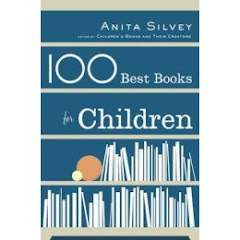
CONFUSCIUS: THE GOLDEN RULE by Russell Freedman
Book Review: Biography
CONFUSCIUS: THE GOLDEN RULE by Russell Freedman
Bibliography
Freedman, Russell. 2002. CONFUSCIUS: THE GOLDEN RULE. New York, New York: Scholastic Press. ISBN 043913957
Plot Summary
“If you study the past and use it to understand the present, then you’re worthy to be a teacher.” Confuscius was a radical thinker from 551 B.C. whose ideas helped mold the ideals of our own democratic government today. This wise sage, who is still thought of as a “loony philosopher” by the eastern world, had many profound ideas regarding politics, education, and spirituality. “The Analects” collects his philosophy of compassion and fairness which has influenced religious and political thoughts throughout the world. Five centuries before Jesus spoke of the Golden Rule, Confuscius set forth his own philosophy by saying, “Do not impose on others what you do not wish for yourself.”
Critical Analysis
Newbery Medal winner Freedman creates an engaging narrative that revolves around stories, legends, and dialogues from The Analects of Confuscius. While infusing Chinese history, culture, and language into the narrative, Freedman points out the impact of Confucius’ ideas on the Western World’s democratic society and ideals. The tone is serious, but Confucius’ wit and playfulness is highlighted throughout, thus, allowing the reader to ponder the wisdom of this sage. Clement’s moody illustrations supplement the thoughtful text. The full-page pieces of art pay tribute to Chinese-style paintings. The deteriorating frames add color and design to the landscape depictions, onto which photographed fruits, petals, and berries have been superimposed.
Review Excerpts
Just as Confucius "prodded [his students] to think in new ways," it will open new doors for young readers. Publishers Weekly
The world today could hardly do better than to ponder the wisdom of this sage. School Library Journal
Connections
List ten quotes from Confucius and identify the lesson to be learned about
Confucianism from the quotes as it applied to modern times.
Create a biographical story told from the perspective of Confucius.
Write your own personal “code of ethics”. What qualities do “good people” have?
Photo courtesy of www.amazon.com
Book Review: Biography
CONFUSCIUS: THE GOLDEN RULE by Russell Freedman
Bibliography
Freedman, Russell. 2002. CONFUSCIUS: THE GOLDEN RULE. New York, New York: Scholastic Press. ISBN 043913957
Plot Summary
“If you study the past and use it to understand the present, then you’re worthy to be a teacher.” Confuscius was a radical thinker from 551 B.C. whose ideas helped mold the ideals of our own democratic government today. This wise sage, who is still thought of as a “loony philosopher” by the eastern world, had many profound ideas regarding politics, education, and spirituality. “The Analects” collects his philosophy of compassion and fairness which has influenced religious and political thoughts throughout the world. Five centuries before Jesus spoke of the Golden Rule, Confuscius set forth his own philosophy by saying, “Do not impose on others what you do not wish for yourself.”
Critical Analysis
Newbery Medal winner Freedman creates an engaging narrative that revolves around stories, legends, and dialogues from The Analects of Confuscius. While infusing Chinese history, culture, and language into the narrative, Freedman points out the impact of Confucius’ ideas on the Western World’s democratic society and ideals. The tone is serious, but Confucius’ wit and playfulness is highlighted throughout, thus, allowing the reader to ponder the wisdom of this sage. Clement’s moody illustrations supplement the thoughtful text. The full-page pieces of art pay tribute to Chinese-style paintings. The deteriorating frames add color and design to the landscape depictions, onto which photographed fruits, petals, and berries have been superimposed.
Review Excerpts
Just as Confucius "prodded [his students] to think in new ways," it will open new doors for young readers. Publishers Weekly
The world today could hardly do better than to ponder the wisdom of this sage. School Library Journal
Connections
List ten quotes from Confucius and identify the lesson to be learned about
Confucianism from the quotes as it applied to modern times.
Create a biographical story told from the perspective of Confucius.
Write your own personal “code of ethics”. What qualities do “good people” have?
Photo courtesy of www.amazon.com


